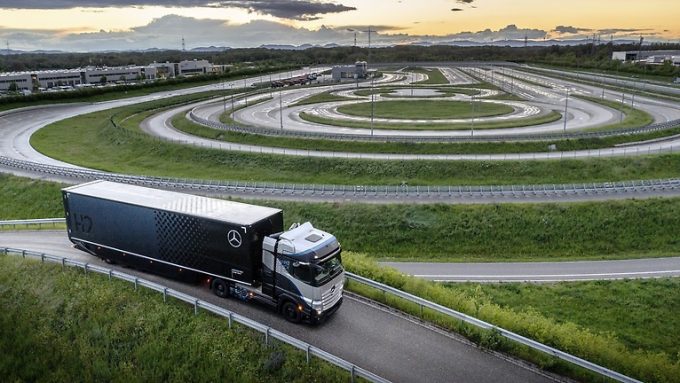Wallenius Wilhelmsen orders more car-carriers – and the biggest yet
Not to be dissuaded from its car-carrier ordering spree, Wallenius Wilhelmsen has exercised options for ...

Daimler road freight subsidiary Truck AG has entered into a partnership with TotalEnergies, with the aim of providing sufficient critical mass for widescale adoption of hydrogen in trucking.
Part of a strategy to make their entire product range zero-emission tank-to-wheel across North America, Europe and Japan by 2039, Daimler intends to provide pre-production hydrogen fuel-cell-powered trucks to customers in France, Netherlands, Belgium, and Luxembourg in 2025 to be used to trial the new fuel.
TotalEnergies, meanwhile, has committed to opening 150 hydrogen ...
Crew saved as MSC box ship, hit by 'monsoon' off Indian coast, sinks
MSC Elsa 3 sinking – now the 'blame game' begins
After DSV 'cuts the cake' on Schenker acquisition, time for redundancies?
New services and reinstated blanked sailings boost transpacific capacity
Congestion fear as US west coast ports brace for transpacific cargo surge
$2.1bn E2open purchase will 'catapult WiseTech into a different dimension'
News in Brief Podcast | Week 21 | GRIs and European port congestion
Houthis claim Red Sea safe for box ships not calling at port of Haifa
Shippers hold their breath as Trump appeals court ruling that tariffs are illegal
Bad news for shippers as wave of transpacific rate increases continues
US importers stockpiling goods to avert autumn shortages amid tariff chaos
Shippers brace for rate rise as smart phones expected to drive air cargo market


Comment on this article